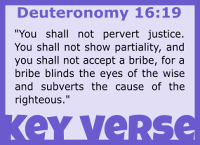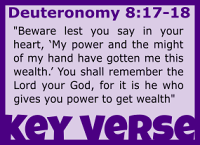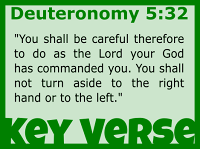On Lending Money
Several years ago,
during a very difficult financial time, a friend of ours sent my wife and I some money
in the mail. The note with the money
read, “This is not a loan. It is a gift
to you. All we ask is that one day, when
you’re back on your feet, that you do the same for someone else in need.” Wow!
What a blessing. They trusted God
and we received a much-needed lift.
God’s Word says that
people can “wander from the faith and pierce themselves with many griefs” (1Timothy 6:10) when they allow money to have an improper hold on their hearts.
That’s why the Bible contains hundreds of verses on how God wants us to treat
money, and this includes the lending of it.
Essentially, the
Israelites were not permitted to charge interest when they loaned money to a
needy brother. They could, however, charge interest on loans made to
foreigners. This rule was part of the Mosaic Law: “If you lend money to one of
my people among you who is needy, do not be like a moneylender; charge him no
interest.” (Exodus 22:25)
The purpose of the law
was two-fold: (1) Charging the person interest would only make their financial
situation worse; and (2) God promised a blessing on the gracious lender that
would be far more than the interest they would have charged.
In the New Testament,
Jesus tells us not to “turn away from the one who wants to borrow from you” (Matthew 5:42). He applied this principle even to our enemies in their
time of need: “But love your enemies and lend to them without expecting
to get anything back. Then your reward will be great” (Luke 6:35).
There are numerous
passages throughout the Bible exhorting us to have a generous and giving heart,
especially to the less fortunate. The
clear teaching of the Bible is that God expects His children to act generously
when lending money, or anytime they see someone in need. And always remember
that our ability to produce wealth comes from God (Deuteronomy 8:18), so it is important that we treat money with an open hand.
One way you can bless a
person in need today is to offer them a financial gift with no strings attached. And, if at all possible, do it anonymously so “that your giving may be in secret. And your Father who sees in secret will reward you.” (Matthew 6:4)

































